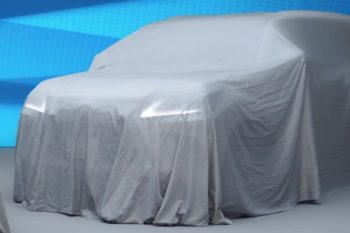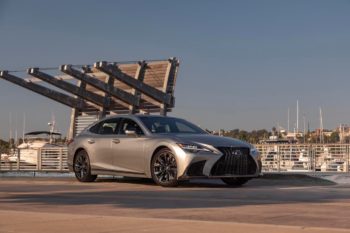This decade, a bevy of Lexus EVs is coming to showrooms in all sizes, shapes, and segments. Upcoming zero-emission models from the Japanese luxury brand will include a Lexus LFA successor, regarded as Toyota Motor Corporation’s first electric supercar. Though details are still scant, we can’t wait to see what this zero emission model from the Japanese luxury brand will have in store.
Return of the LFA as an electric supercar
The Lexus LFA was the company’s top boss Akio Toyoda’s dream project, and it served as the company’s halo model last decade. Production of the hand-crafted sports car began on 15 December 2010 and ended two years later on 14 December 2012.
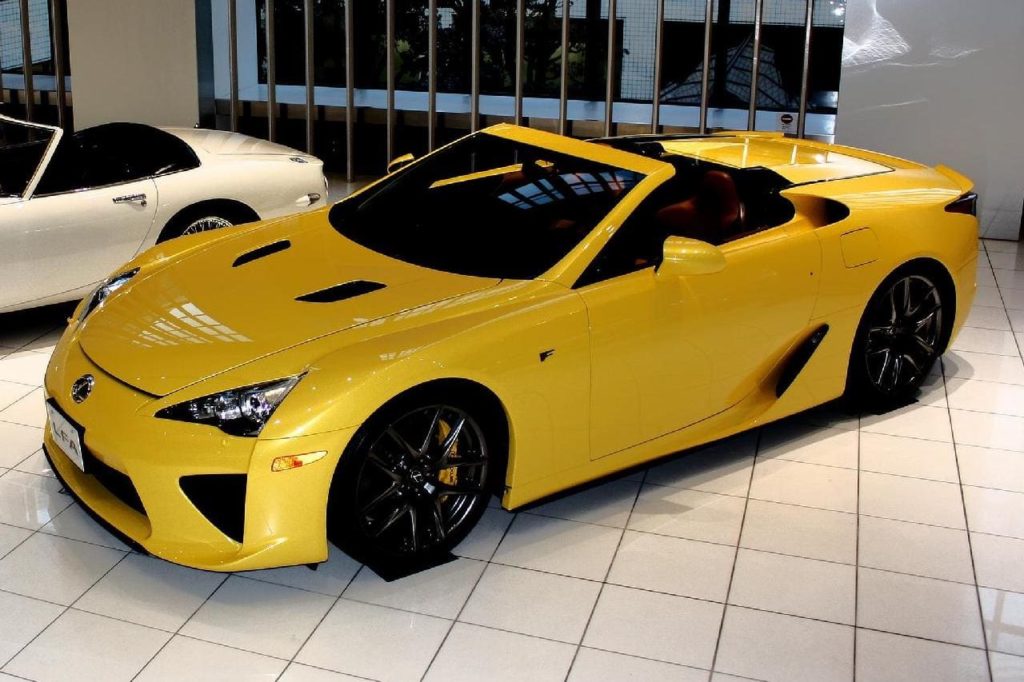
Nine years after the final Lexus LFA left the production line in Motomachi, Japan, Koji Sato said that the company had started work on the next halo car for the company, which looks like the spiritual successor to the LFA (the LC was a grand tourer). The President and Chief Branding Officer of Lexus announced the concept version of a new Lexus electric supercar on 14 December 2021:
The endless pursuit of the Lexus Driving Signature will move to the next stage through development of the new Sports Battery EV.
Koji Sato, President and Chief Branding Officer, Lexus (Media Briefing on Battery EV Strategies on 14 December 2021)
Top-boss Toyoda was quick to drop a hint that the electric vehicle would serve as successor to the Lexus LFA. He said:
Lexus will develop a next-generation battery EV sports car that inherits the driving taste, or the secret sauce, of the performance cultivated via the development of the LFA.
Akio Toyoda, President, Toyota Motor Corporation (Media Briefing on Battery EV Strategies on 14 December 2021)
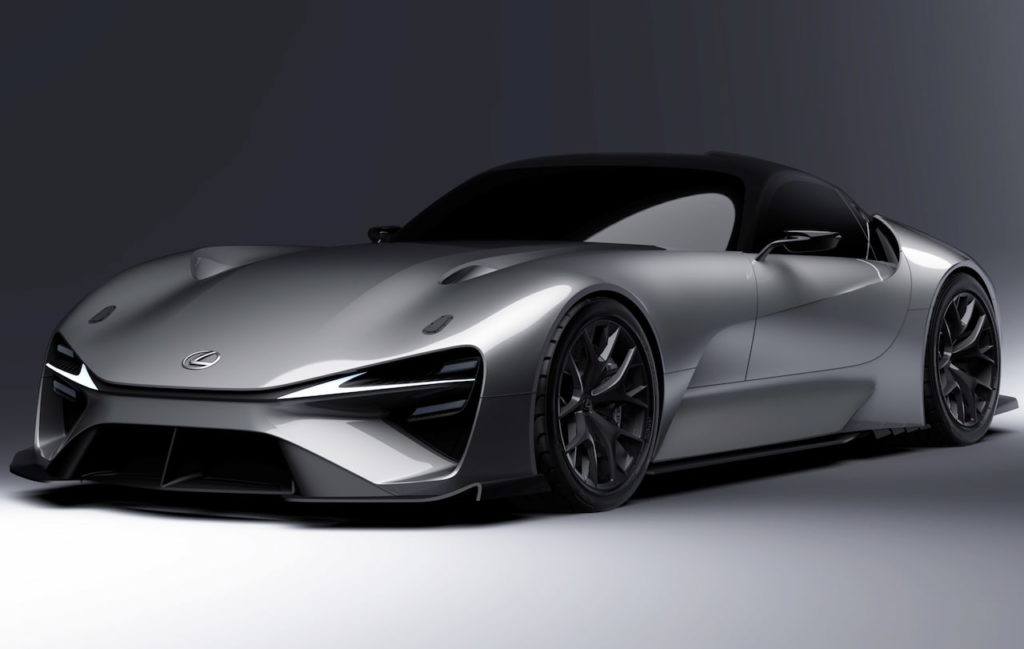
Electric sports cars from the parent company won’t just wear the Lexus badge. In December 2021, during the Tokyo Auto Salon press conference, Toyoda mentioned the arrival of fun-to-drive Toyota cars as well, probably even with motorsport lineage. He said that the brand is considering all options and wants to appeal to car enthusiasts as much as possible.
Koji Sato, president of Gazoo Racing and Lexus, mentioned the need to enhance the base performance of a car by reducing weight and increasing the power and torque outputs. This could mean that the brand is exploring the possibility of electrifying GR-badged cars like the GR Yaris, which was loved by the motoring press across the globe.
With the ‘Sports EV’ and the Lexus LFA successor already previewed by Toyota, it’s not difficult to expect what’s in the pipeline. Moreover, with the top bosses frequently using terms like ‘car lovers’, ‘taste of driving’ and ‘enhanced performance’, expect Toyota to satiate the hunger of those who have petrol in their veins, with uncompromising 100% electric sports EVs later in the decade.
Design
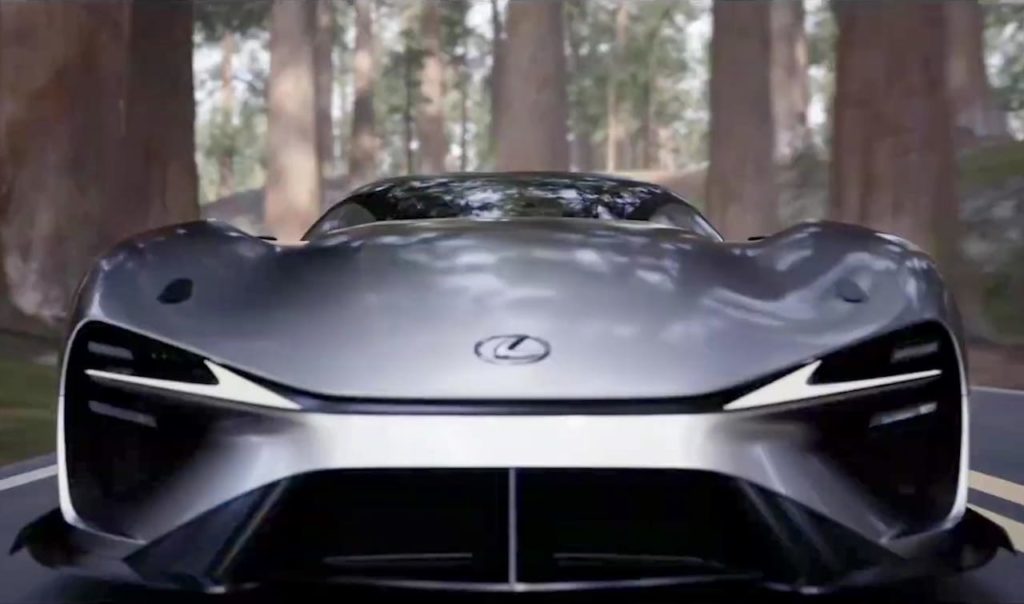
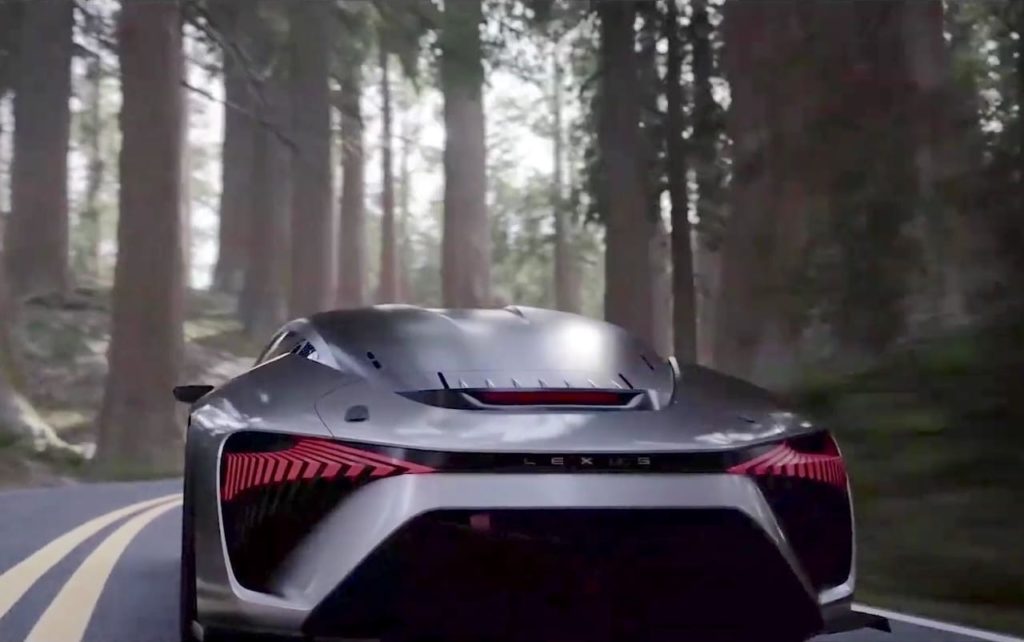
The concept ‘Lexus Electrified Sport’ presented on 14 December 2021, will evolve into the Lexus LFA successor. It looks close to production, and unlike the sharp-edged LFA, it’s lavished with curves and swoopy surfaces. While the front-engined LFA resembled a mid-engined supercar, its successor has the swanky design cues of a posh GT.
The precursor to the Lexus electric supercar has a noticeably long hood though it doesn’t need to accommodate a V12 engine like Aston Martin’s Vulcan and a short tail section. It looks hunkered down, and the low-nose, cab-rearward layout, and athletic bodywork make it all very dramatic. The design is typically Japanese, understated yet powerful, and unmistakable.
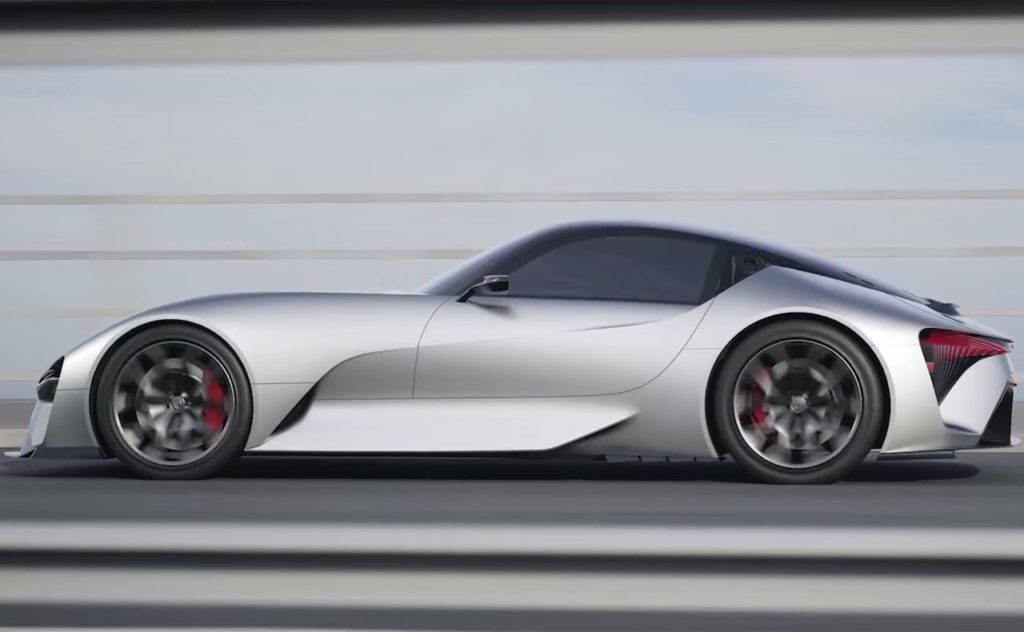
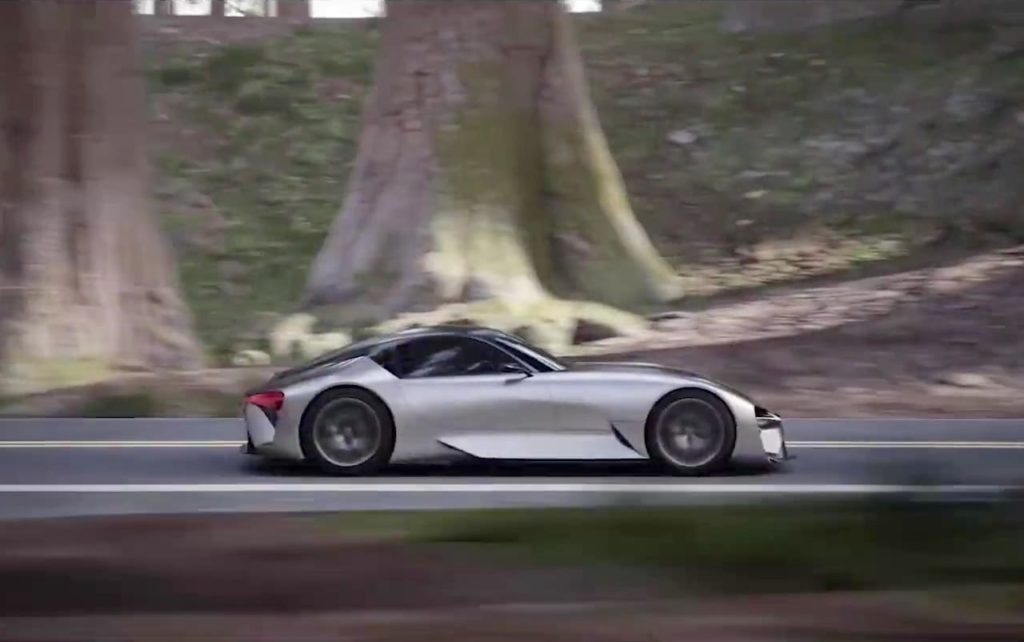
The concept features technical-looking headlights consisting of bow-shaped DRL and small horizontal main lights above and below. The headlights don’t occupy much space, and huge openings on the sides of the front-end probably serve as functional air intakes for aerodynamics and cooling. The LFA came before Lexus started using the spindle grille. Its successor will likely arrive after it grows beyond the signature design feature, as the concept is devoid of that feature. A splitter generates downforce and keeps the concept car pressed on the ground.
While the front-end of the Electrified Sport screams of an impending attack on the tarmac ahead, the profile brings poise and elegance to the design. The wheel arches barely have any extension, and designers have tried to maintain a low height. The quadrilateral cut-out in the door panels is another example of the intense focus on aerodynamics. Combined with the fast-sloping roofline, it offers the illusion of moving fast when the vehicle is parked. The rear-end emphasizes the really low and flat stance. Bow-shaped tail lights try to mimic the DRL of the headlights, and some may find them reminiscent of the Audi e-tron GT.
Specifications
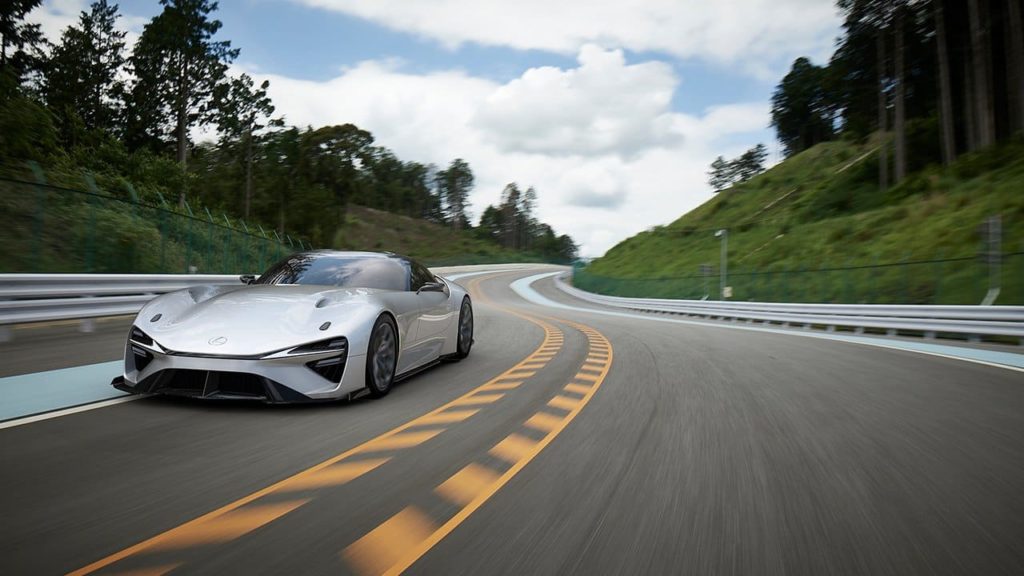
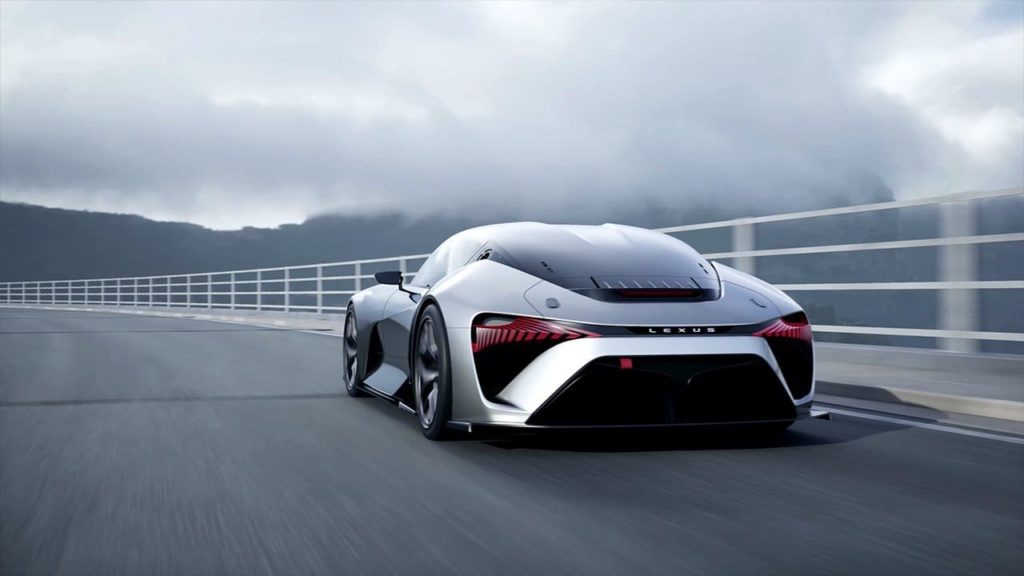
The sophisticated exterior of the concept isn’t overselling the upcoming flagship Lexus model. The performance will be just as its vigorous, ready-to-attack exterior. Sato said that the “(0-100 km/h or 0-62 mph) acceleration time will be in the low 2-second range.” The driving range will be just as impressive – more than 700 km (435 miles). Plus, Lexus is exploring the possibility of using solid-state batteries in the electric supercar, which could make it safe and extend its range and durability.
Sato says that electric motors are the best solution for Lexus cars when it comes to powertrain types. In a Q&A session after TMC announced its BEV strategy on 14 December 2021, he said that the responsiveness, the smooth acceleration and deceleration, and the quietness they offer is not possible with an internal combustion engine. Plus, the performance electric motors could offer might not be possible with engines, he added. That’s something that would especially matter in a supercar like the potential LFA successor.
When can we expect the Lexus LFA’s successor?
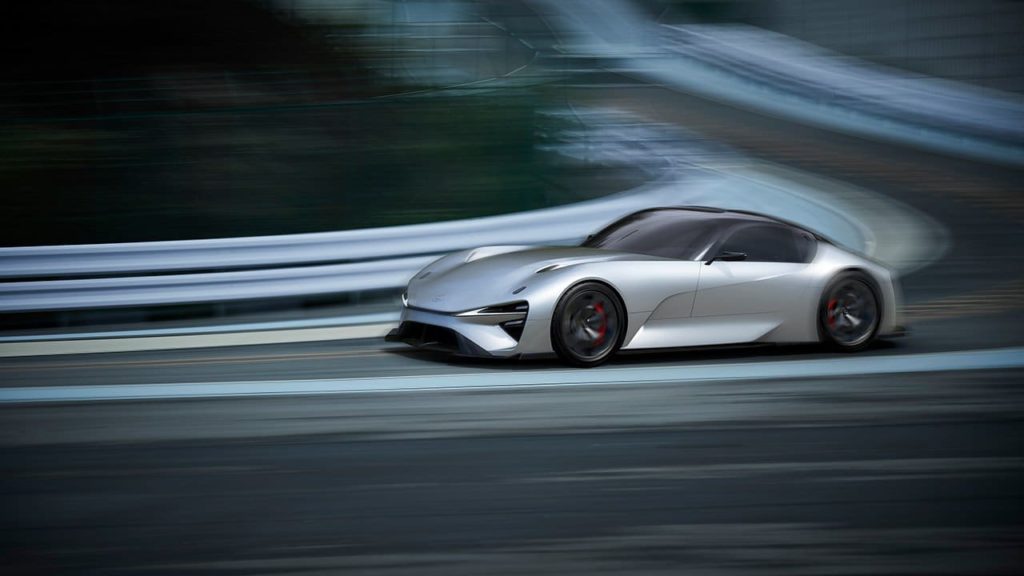
The launch timeline of the Lexus LFA successor was not announced during the press conference. However, if Lexus decides to release the EV with solid-state batteries, expect the launch of the electric supercar in the second half of the decade.
Featured Image: Noriaki Mitsuhashi/N-RAK PHOTO AGENCY
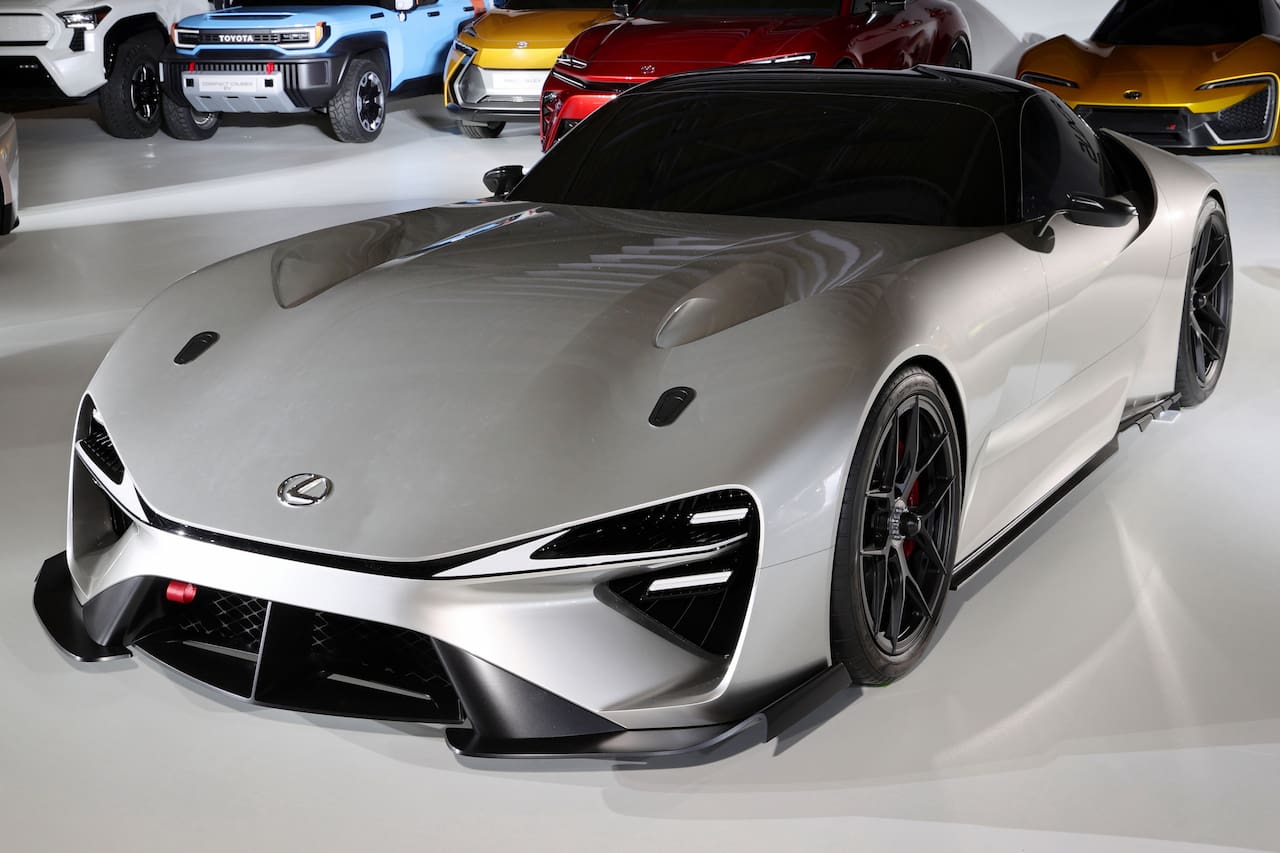
![Lexus Electric Car (UX300e) heads into new markets this year [Update]](https://electricvehicleweb.com/wp-content/uploads/2020/04/Lexus-UX300e-rear-350x197.jpg)
